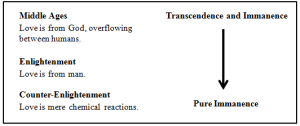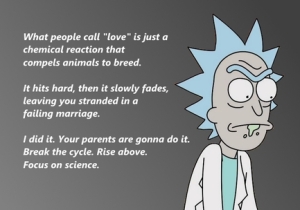When I say “love,” what images come to your mind?
Here are just a few images of love I see in my community. A group of friends gathers around a family to help them load their moving truck and move to a new home. A group of young friends offer free childcare so parents can go on a date night. When a young couple loses their newborn child soon after birth, their pastor visits them in the hospital to weep and mourn with them, and their friends buy them a vacation to help them recover. A 10 year-old hugs his 25-year old friend good-bye. Two grown men meet over a cup of coffee to talk honestly about their struggles, fears, work, families, and dreams. A young couple are struggling to take care of their newborn, so their friends bring them dinner every night for two weeks. A family has a leak in their roof, and their friends fix it so the family can save money. A single man needs housing; a family welcomes him in their home and he becomes a part of their family. A family joyfully adopts a child.
The reason I share these verbal images is this: when writing about love, there is a very real danger. The danger is that love would be reduced from a concrete and beautiful part of personal experience to a bland and abstract idea. When I speak about love here, in somewhat abstract terms, it is my sincere hope that love will take concrete expression in your personal experience and in mine.
A Brief History of Love Since the Middle Ages
Augustine (354 A.D. to 430 A.D.), following biblical teaching, asserted that God is love, and love is from God. He believed that man is in need of divine grace in order to love God and love his neighbors as fully as possible. Pelagius (360 A.D. to 418 A.D.) contradicted Augustine, insisting man doesn’t need divine grace in order to live righteously and love others properly. (If you are unfamiliar with the conflict between Augustine and Pelagius, see R.C. Sproul’s piece here.) As the Enlightenment eclipsed the Middle Ages, Rousseau (1712 A.D. to 1778 A.D.), the father of modern secular humanism, insisted that man, not God, is the source of love. Then came the counter-Enlightenment: reductive materialist thinkers like Nietzsche (1844-1900) insist that love is just chemical reactions.
I realize I am painting in broad brushstrokes to the point of oversimplification here, but it is helpful. Charles Taylor connects the Middle Ages and Enlightenment concisely with a key insight: “Rousseau is Pelagian Augustine, the good will is now innate, natural, entirely anthropocentric” (A Secular Age, p. 202). (“Anthropocentric” means “man-centered.”) In other words, contrary to Augustine, Rousseau says that man is the source of love and doesn’t need divine grace in order to love properly.
The process looks something like this:

The counter-Enlightenment presents a severe challenge to both Christianity and secular humanism: its cold, cruel logic destroys any beauty in love.

Applications
1) When someone uses the word “love,” ask them what they mean. Is stealing loving? Is sexual immorality loving? As we have seen here, there are at least three definitions of love. The typical Westerner has a definition of love that is a compromise between Augustine’s and Rousseau’s.
2) In a world where good and evil exist, it is not enough to know that a man loves. We should want to know whether that man loves good or loves evil. Pagan One-ism, in blurring the separation between good and evil encourages a man to love evil.
3) According to Christ, true love is love for God and love for neighbor (Luke 10:27). True love is expressed in obeying God’s commandments (John 14:15), and Christ’s disciples can only love properly when we are enabled by divine grace (John 15:5). The secular humanist definition of love is false, for it ignores God. The reductive materialist definition of love is false, for it minimizes the glory of love. The theological liberal definition of love is false, for it trifles with God’s commandments.
4) The logical and just consequence of rebelling against God and ignoring Him is that reductive materialism destroys love, robbing it of its transcendence, beauty, and glory. Similar arguments can be made for truth, meaning, morality, and beauty. If God is love, we should want to be connected to Him, not ignoring Him!
5) The supreme demonstration of love is not man’s love, but in Jesus acting as the propitiation, the substitutionary sacrifice, for rebels like you and me. When we trust in Jesus, we are reconciled to the God of love. When we delight in God’s forgiveness, God’s love flows through us like a vine nourishing its branches.
6) The world is aching to see love for God and love for neighbor. I have written about love in somewhat abstract terms here, but again, it is my sincere hope that love will saturate your personal experience and not remain an abstract idea. The biblical writer John makes the astounding claim that Christians’ love for one another makes God’s beauty visible in the world (1 John 4:12). Wow! God, help us to love You and our neighbors. Help us to make Your excellence and beauty visible through our love. Amen.
You are so right. We should abandon science. All those doctors and researchers should just start praying more focusing on love. That would solve all of our problems and we would all go to heaven. Makes perfect sense.
LikeLike
Nowhere did I say we should abandon science. I for one deal with an extremely painful skin condition and am thankful for how modern medicine relieves some of my pain.
LikeLike
then I am sure you understand how important scientific research on stem cells is. It would cure you. Tell your fellow Christians to ask their local politicians to reflect those beliefs.
LikeLike
And your message above clearly mocks science. You’re mocking a real salvation to your ailments.
LikeLike
I think you’re misunderstanding what I’m saying. Stem cell research is great (i.e. adult stem cells and iPSCs). Embryonic stem cell research is completely wrong as it murders another human being. There is no reason to do embryonic stem cell research when iPSC research can mimic stem cells without destroying an embryo.
LikeLike